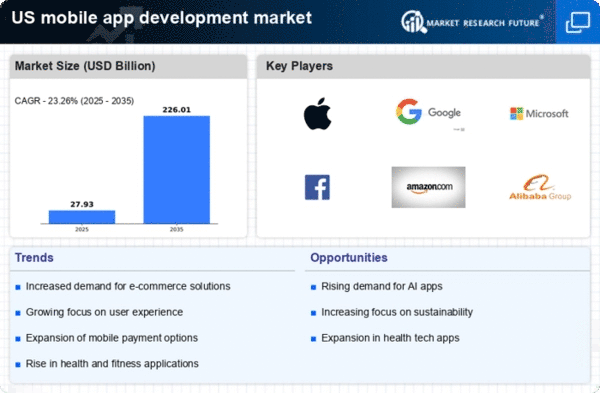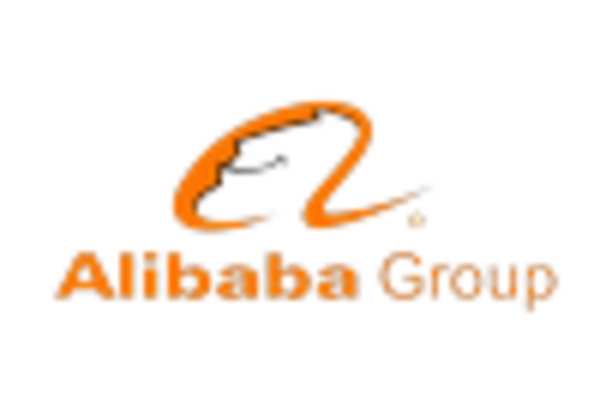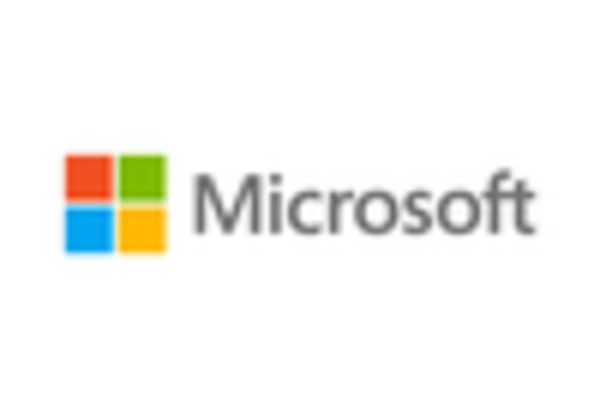Emergence of 5G Technology
The advent of 5G technology is poised to transform the mobile app-development market by enabling faster data transmission and improved connectivity. With 5G networks rolling out across the US, developers are presented with new opportunities to create more sophisticated and data-intensive applications. The enhanced speed and reduced latency associated with 5G could lead to a surge in app functionalities, such as augmented reality and real-time data processing. As users increasingly demand seamless experiences, the mobile app-development market is likely to adapt by integrating these advanced capabilities into new applications, thereby fostering innovation and competition among developers.
Growing E-commerce Adoption
The mobile app-development market is significantly influenced by the rapid adoption of e-commerce platforms. In 2025, e-commerce sales in the US are projected to reach approximately $1 trillion, with a substantial portion of these transactions occurring via mobile applications. This shift towards mobile commerce compels businesses to develop user-friendly and efficient mobile apps to enhance customer engagement and streamline purchasing processes. As consumers increasingly prefer shopping through mobile devices, the demand for mobile app solutions tailored to e-commerce is likely to rise. This trend not only boosts the mobile app-development market but also encourages innovation in app functionalities to meet evolving consumer expectations.
Surge in Mobile Device Usage
The mobile app-development market experiences a notable surge in demand due to the increasing usage of mobile devices across various demographics. As of 2025, approximately 85% of the US population owns a smartphone, which significantly drives the need for innovative applications. This trend indicates that businesses are compelled to invest in mobile app solutions to reach their target audiences effectively. The proliferation of mobile devices has led to a corresponding rise in app downloads, with estimates suggesting that over 200 billion apps are downloaded annually in the US. Consequently, The mobile app-development market is expected to grow as companies seek to capitalize on this expanding user base.
Focus on User Experience and Design
The mobile app-development market is increasingly driven by a focus on user experience (UX) and design. As competition intensifies, developers are prioritizing intuitive interfaces and engaging designs to attract and retain users. Research indicates that 88% of users are less likely to return to an app after a bad experience, underscoring the importance of UX in app development. In 2025, companies are expected to invest more in UX research and design processes to enhance app usability. This emphasis on user-centric design not only improves customer satisfaction but also contributes to the overall success of applications in the mobile app-development market.
Increased Investment in Mobile Solutions
Investment in mobile solutions continues to rise, significantly impacting the mobile app-development market. In 2025, venture capital funding for mobile technology startups is expected to exceed $50 billion in the US, reflecting a strong belief in the potential of mobile applications. This influx of capital allows developers to explore new ideas and technologies, leading to the creation of more diverse and innovative applications. As businesses recognize the importance of mobile presence, they are likely to allocate more resources towards app development, further stimulating growth in the mobile app-development market. This trend suggests a robust future for mobile applications as a critical component of business strategy.

















